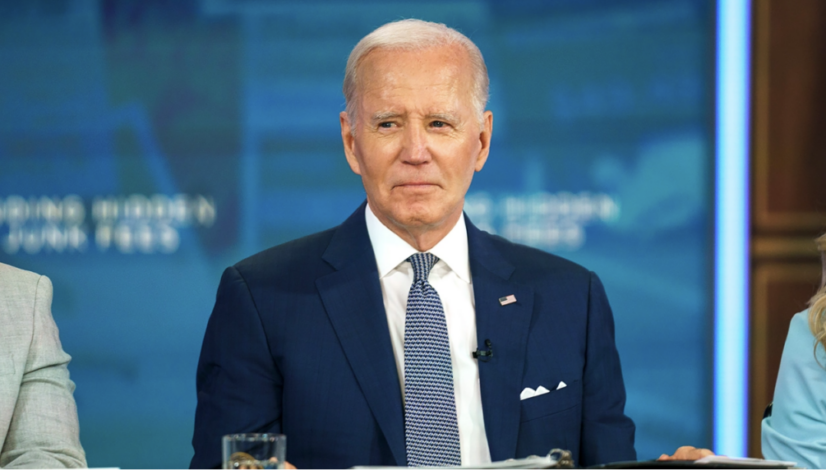Nikki Haley is right — Biden is weak on China

Nikki Haley wants Joe Biden to get tough on China.
Haley, a former ambassador to the United Nations and 2024 GOP hopeful, writes in The Washington Post that, “The story of the Biden administration’s approach to China has been weakness.” She is correct but should have added: weakness and utter confusion.
Just recently, President Biden trampled on his secretary of state, Antony Blinken, when he described Chinese President Xi Jinping as a “dictator” in remarks to a donor group in California. Our addled president’s characterization infuriated his Chinese counterpart and likely undid whatever progress Blinken had made in rebooting relations with our largest rival and adversary.
This is not Biden’s first “oops” moment regarding China. On several occasions the president has vowed to defend Taiwan, obliterating decades of “strategic ambiguity” over our posture toward that independent island. In each instance, the White House has had to walk back Biden’s intemperate remarks.
As Haley searches for daylight in the crowded Republican forest, she is smart to fasten on Biden’s China policy. Americans, alerted by Donald Trump — possibly his most important legacy — to Beijing’s long-time theft of intellectual property, unfair trade practices, human rights atrocities and cheating on international commitments, rightly distrust China and expect our government to protect our interests.
That distrust has only grown as evidence mounts that COVID-19 escaped from a lab in Wuhan and as China has moved closer to Russia. It was also fed by the shocking sight of Beijing’s giant spy balloon (now deemed “silly” by our president) wafting over our nation and by news that China and Cuba are planning to open a joint military training base some 100 miles off our shores. Each of these events has been downplayed by the Biden White House; its timidity is inexcusable and inexplicable.
In anticipation of Blinken’s recent trip to Beijing, Haley suggested five questions that our secretary of State should pose to his Chinese counterparts, including why China appears to be preparing for war, abusing our economy, and infiltrating our country and our hemisphere. The former South Carolina governor also wanted Blinken to let China know that we will “help Taiwan protect itself” because it is “in our interest.”
These are the muscular issues on the table — issues that are at the heart of our conflict with China. Blinken did not appear to make progress on a single one. The image we have of his visit is a widely publicized photo of our secretary of State walking forward, hand eagerly outstretched towards a reserved, stationary President Xi — a U.S. supplicant on full display.
The Biden-loving media has tried to cast Blinken’s visit as a win. They mostly spared U.S. audiences the humiliation of knowing that Xi gave the U.S. secretary of State just 35 minutes and the foreign ministry afterward dismissed the meeting as a mere “courtesy.”
Meanwhile, Blinken failed in his most important ambition for the trip: reestablishing military communications. Imagine: our Defense Secretary Lloyd Austin requested a meeting with his Chinese counterpart during a Pacific security summit in late May, and was turned down flat. That snub is unacceptable, but we accepted it and have gone back for more.
Instead, the two sides agreed to host a “working group” to consider restricting China’s export of chemicals used in the manufacture of fentanyl, which killed nearly 80,000 Americans in 2021. And, we agreed to more student exchanges, and more airplane flights. Thin gruel, indeed.
Blinken, whom Xi kept dangling for days about whether the meeting would even take place, was dispatched home with little to show for his efforts.
What should infuriate every American is not just that Biden’s team is so eager to placate Xi. It is that they have the power dynamics backward; China needs the U.S. right now more than we need China. China’s economy is faltering as the rebound from COVID-induced shutdowns has fizzled. Growth in retail sales, property investment and industrial production dropped last month, surprising forecasters. May exports, too, disappointed, declining 7.5 percent from the year before. The government has now cut interest rates three times to boost growth.
Some of these shortfalls may prove temporary, but others suggest long-term problems. Urban youth employment is above 20 percent — a dangerous and destabilizing development. The population is declining and wealthy people are fleeing the country; the Economist reported that “some 10,800 high-net-worth individuals, who have an average wealth of $6m, left the country” last year. That $65 billion outflow is likely just the beginning.
China’s biggest challenge is rock-bottom consumer confidence, which is holding back domestic spending. This is not surprising. Xi’s COVID lockdowns were gruesome and he has attacked wealth — and specifically tech — entrepreneurs, which has scared off foreign investors. Just lately, talking to China’s youths, Xi advised them to “eat bitterness”; meaning, suck it up, life isn’t going to get better.
He may be correct. Xi has made doing business increasingly difficult for international firms operating in China. The Economist reports that officials have raided companies, including Bain and Mintz, a U.S. due-diligence firm, using “vaguely worded laws concerning data, intellectual property and national security.” The magazine calls the stepped-up attacks “a tax on global business.” These complications will not impact multi-nationals attracted to China’s huge markets, but they are driving smaller firms out.
This was the backdrop for Antony Blinken’s visit. As Haley writes, our government should “show American strength and resolve.” With the world’s leading military and economy, we should be operating from a position of strength, but the Biden White House does not act that way. Someone should tell our president that in representing the U.S., he really is “The Big Guy” when it comes to China.




